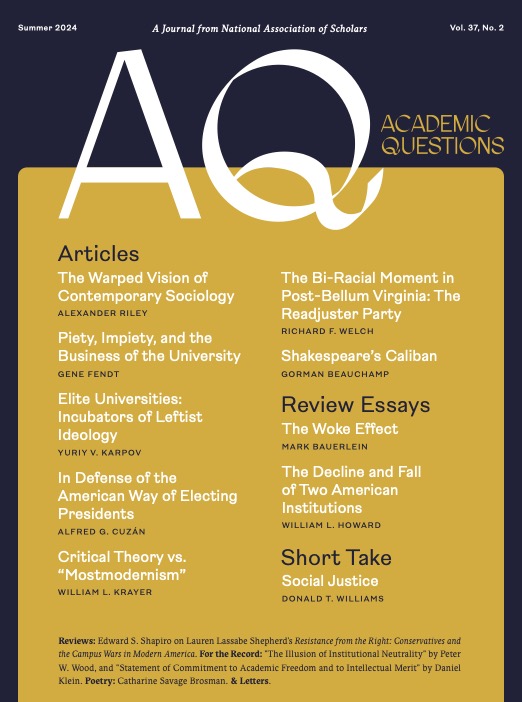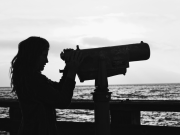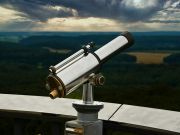Southwest Evenings
Rio Abajo1
Mary Austin (1868-1934)
In Rio Abajo ghosts walk.
At Socorro I saw them,
Three and twenty brown gowns, rope-girt and sandalled.
By old Isleta ford,
Don Francisco de Coronado with his Spanish gentlemen—
Armor-rust on their satin sleeves,
Arrow-slits in their leathern greaves—
Rode all down the cotton fields
While the Tegua war-drums thundered.
Once in the dawn below Belen
Creaked the broad-wheeled carreta train
Whose single guttering candle showed
Where La Conquistadora rode
To reconquest and old pain.
Once by this saguan’s ruined arch
Music its walls absorbed gave back again,
As in the dusk guitars were playing,
And on the stamped adobe floor
The dance still swaying.
Still is the alameda sweet
With sun-steeped petals strewn
Where late the twinkling monstrance passed,
Mid gold more lucent than its own,
To bless the fields again.
Chapala Midnight
Witter Bynner (1881-1968)
What spirit is abroad that so bereaves
The night? No one has sung, nor a guitar been played.
A hound under the house has whined and bayed
And a bat is breathing at the window-eaves.
When I look out the moon among the leaves
Of corn becomes a curve of metal. I am afraid
Lest I may hear the whisper of grass-blade
Growing out of a body that still grieves.
I lock my door and cringe along the wall,
Snuffing my candle as I creep to bed;
And when I hear a fragment of wax fall
On the table-top I feel at the top of my head,
Tapping my memory, the bony ball
Of a finger that was once perfectly made.
Metates
Catharine Savage Brosman2
—Acacia Ranch House, Arizona
We arrive too soon; the small museum isn’t open yet.
Chairs and a swing invite us to the porch,
as a determined breeze, configuring the trees
in random motions, riffles through my hair
and lifts my collar. We’re in Oracle, named for a mine,
itself the namesake of a ship; and the Acacia Ranch,
a slice of time, well past centenarian, sails
through the rugged Santa Catalinas, with its timbers
of great age visible in beams and rafters, and its adobe
keel, enduring. It has served as sheep ranch,
miners’ and travelers’ lodgings, post office, smithy,
smokehouse—also sanitarium and morgue.
Don’t we feel young and vigorous, walking around
with good lungs, hearty voices, muscles
well maintained, responsive? Now to the displays:
tools, saddles (narrow, plain), embroidered dresses,
vests, tooled boots, a hat devised of feathers.
Photographs propose their black-and-white enigmas,
mostly stern, occasionally smiling. Bill Cody
owned the High Jinks Gold Mine here; Edward Abbey,
wanderer of the Southwest, kept a p.o. box.
Who’s this? Ah, someone less well known,
one Alice Carpenter, originally from Detroit, not well,
who moved to Arizona, lost her husband to the flu,
then her son to early death, but loved the land,
its native peoples, and the past, as it eroded swiftly
under time and men’s indifference.
She assisted the Tohono O’odham who camped out
along her property; and she collected artefacts,
not carelessly, but learning, labeling and preserving
them, even facing down the bulldozers
of Indian mounds.—I’ll stop this evening with a friend
who owns her house now (paintings, dark wood chairs,
textiles, terra cotta tile). As dusk moves in, we’ll eat
a simple meal on the veranda, looking over palo verde,
agave, and bird of paradise in bloom, and Alice’s
metates strung like beads along a path, round,
hollowed, now returned to earth as ornaments, attesting
to our ancient hunger, ancient toil. A great horned owl
will call to me toward dawn. “Who? Who, who?”
1 The source for Mary Austin and Witter Bynner poems is The Golden Stallion, ed. D. Maitland Bushby (Dallas: Southwest Press, 1930).
2 Catharine Savage Brosman is professor emerita of French at Tulane University; [email protected]. She is the author of fifteen collections of poetry, the latest of which is Aerosols and Other Poems (2023) from Green Altar Books, an imprint of Shotwell Publishing, Brosman’s poetry has appeared regularly in AQ, along with her article “Poetry and Western Civilization,” in the spring of 2023. In our winter 2023 issue she reviewed Jonathan Chaves’s Surfing the Torrent in “Poetry and the Human Experience.”
Photo by S&B Vonlanthen on Unsplash














